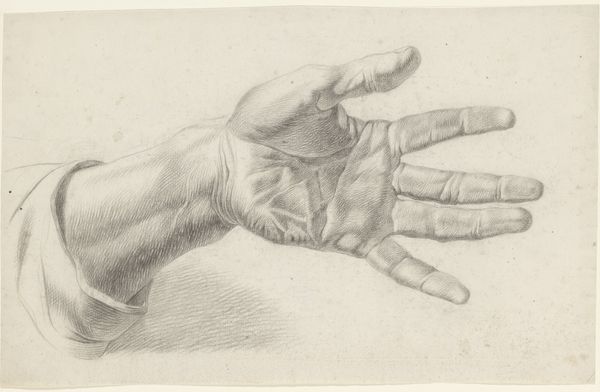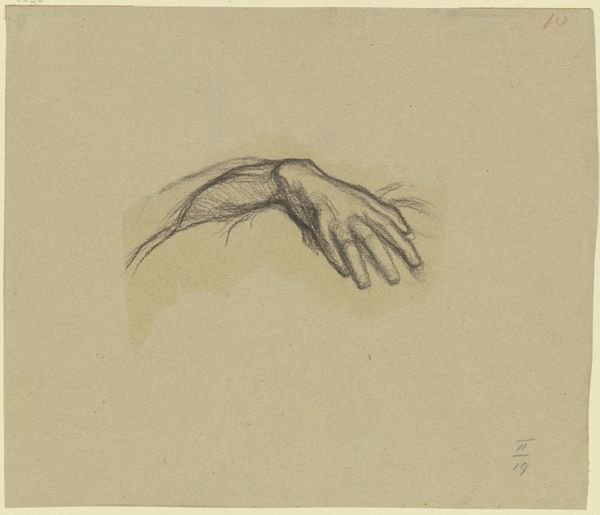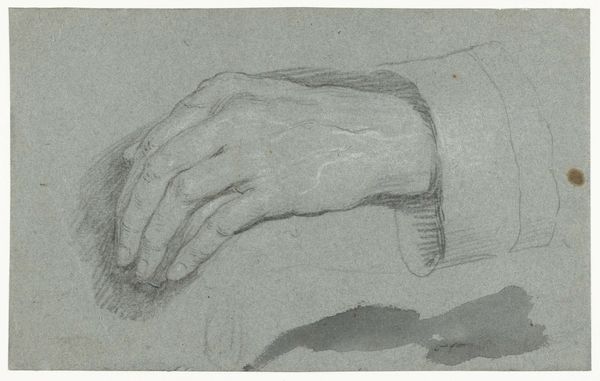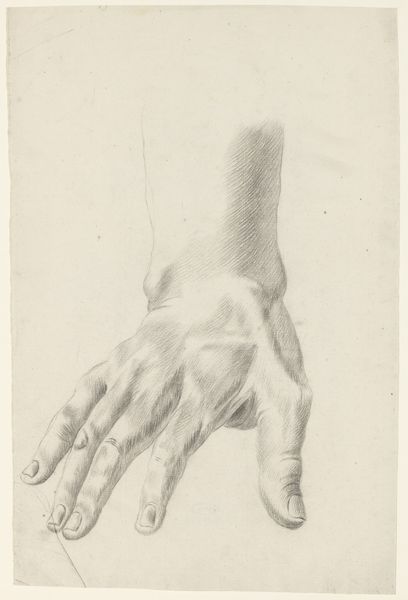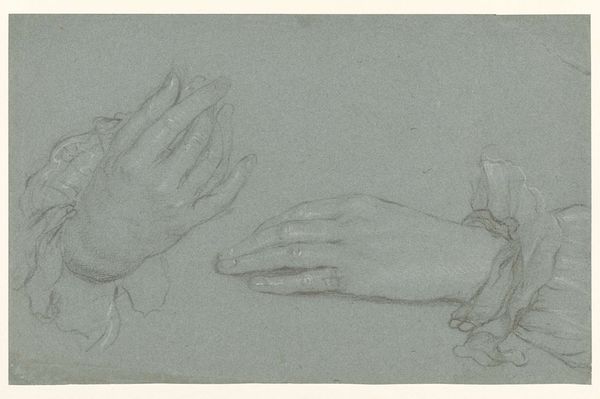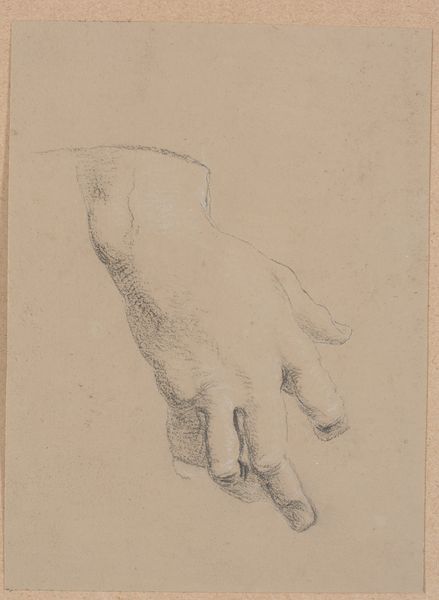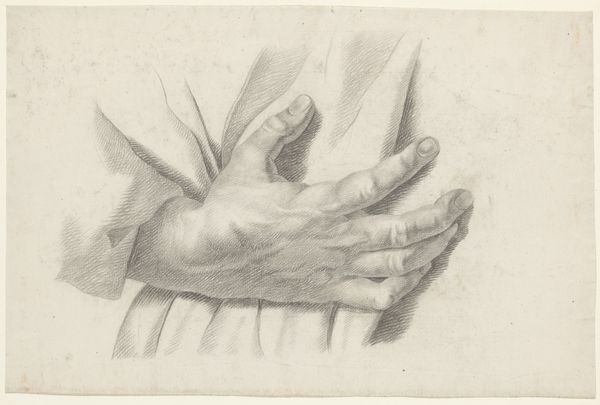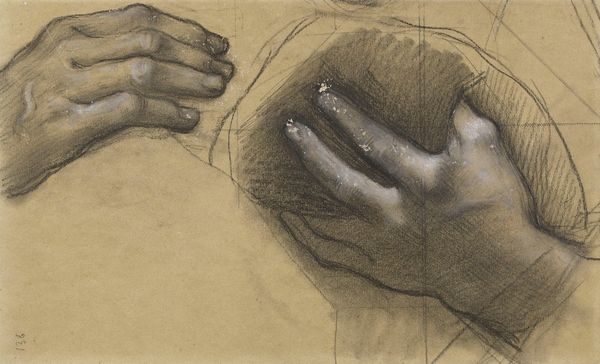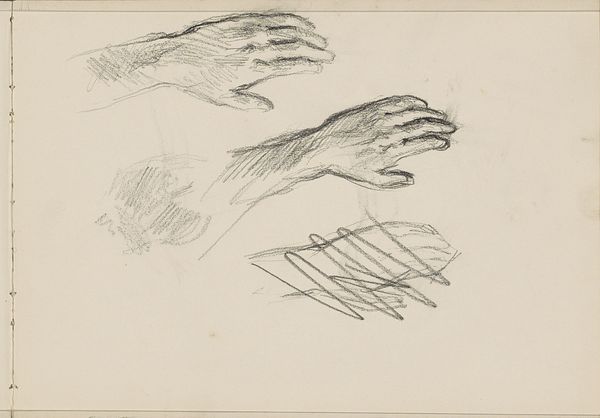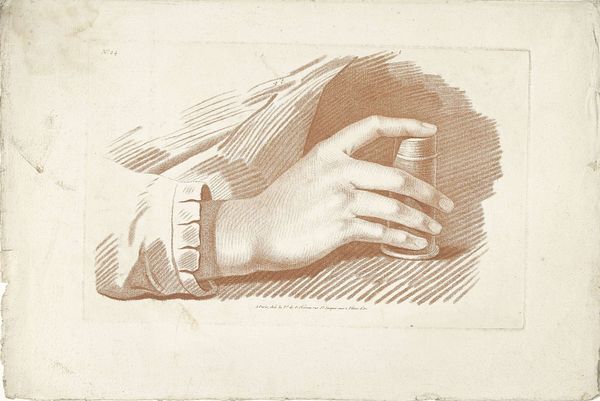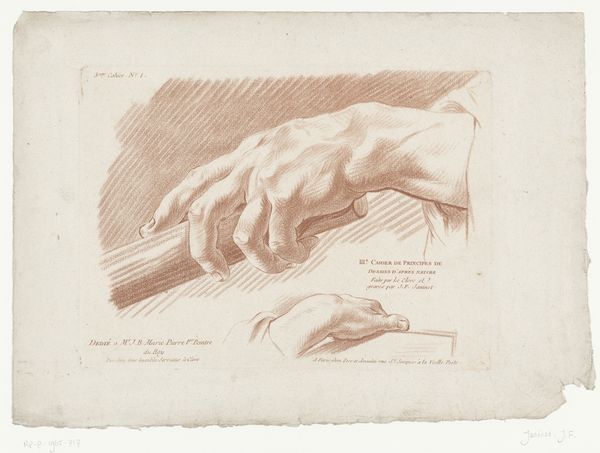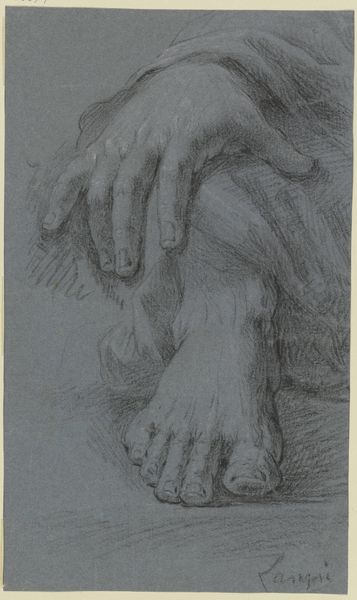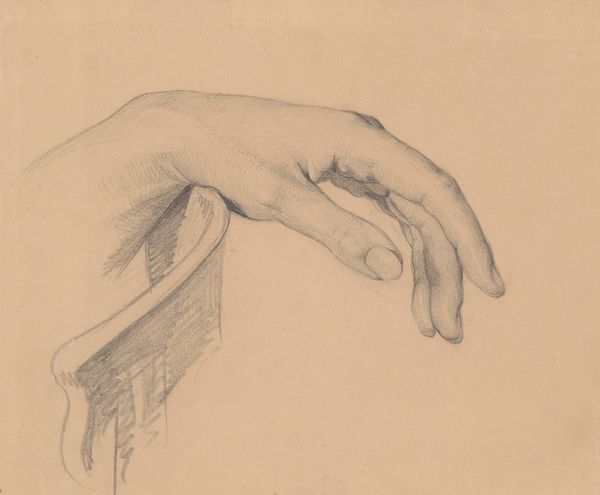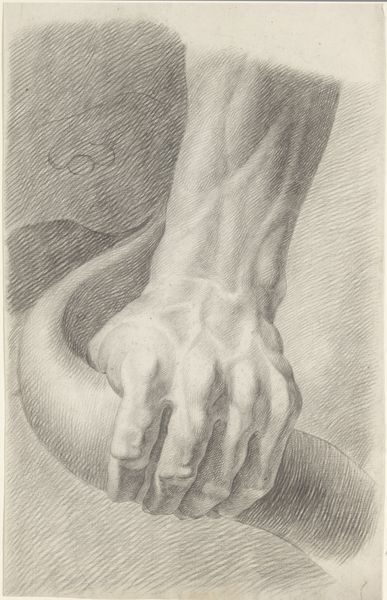
Academiestudie naar een gips van een antiek beeld: detailstudie van een hand 1819 - 1881
0:00
0:00
johannestavenraat
Rijksmuseum
#
pencil drawn
#
amateur sketch
#
toned paper
#
light pencil work
#
pencil sketch
#
charcoal drawing
#
pencil drawing
#
pen-ink sketch
#
portrait drawing
#
pencil work
Dimensions: height 268 mm, width 420 mm
Copyright: Rijks Museum: Open Domain
Johannes Tavenraat made this study of a plaster cast of an antique sculpture with graphite. This drawing provides insight into the academic practices of the 19th century. During this time, artists were trained to copy classical forms to master anatomy, proportion, and the idealization of the human body. However, this was also a period defined by strict social hierarchies and cultural norms. The "antique" sculptures that artists like Tavenraat studied were often Greco-Roman, reinforcing a Western-centric view of beauty and culture. The whiteness of the plaster casts, in turn, served to normalize and elevate European features and ideals, subtly excluding other cultural representations of the body. Consider, then, how this seemingly straightforward academic exercise encodes complex issues of race, class, and cultural authority. What does it mean to train the eye and hand to reproduce particular forms and, in doing so, perpetuate certain aesthetic and social values?
Comments
No comments
Be the first to comment and join the conversation on the ultimate creative platform.
